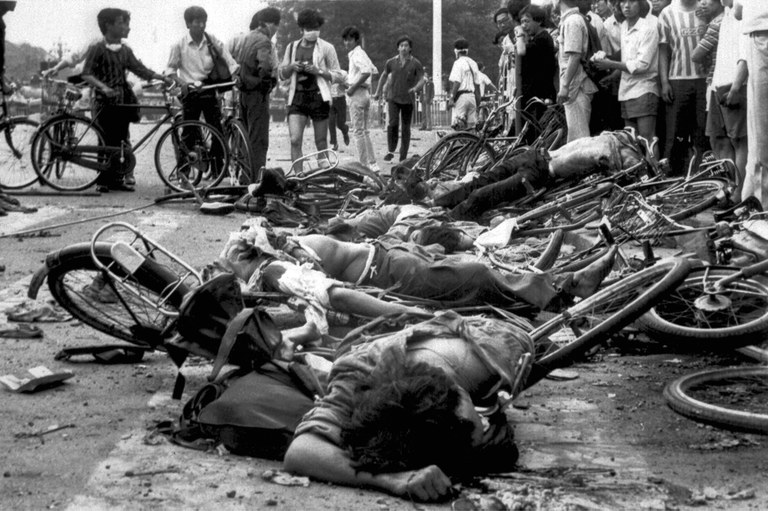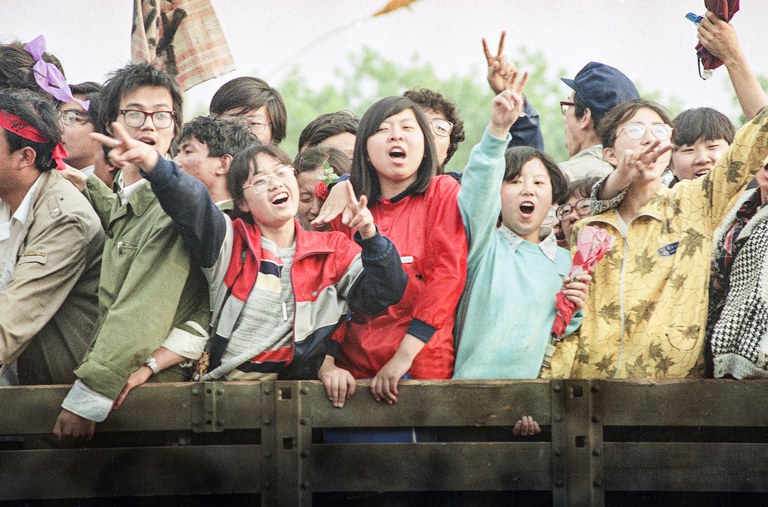Vietnam Communist Party expels health minister and Hanoi mayor for COVID test scandal
The Vietnam Communist Party (VCP) on Monday expelled the country’s health minister and the mayor of the capital Hanoi for their roles in a U.S. $172 million scandal involving overpriced coronavirus test kits, the party said at an emergency meeting of its Central Committee. Minister of Health Nguyen Thanh Long and Mayor Chu Ngoc Anh are the latest casualties of the one-party state’s crackdown on corruption, which has seen several high-profile arrests of government and private sector officials over the past few months. Long and Anh could face criminal charges for their actions in connection to the Viet A Technologies Company scandal, during which officials were paid off so that hospitals would use overpriced COVID-19 test kits. “It’s always a sign when the Vietnam Communist Party calls for an emergency session of its Central Committee,” Southeast Asia analyst Zachary Abuza, a professor at the National War College in Washington, told RFA. “Expulsion from the party is in itself a major deal… No longer protected by their elite party status, their legal jeopardy just went up a few notches,” he said. “Now that the party’s inspection has concluded, they will now be passed on the prosecutors for trial and an almost certain conviction.” The company’s director-general, Phan Quoc Viet, faces charges of bribing health officials so that they would agree to overpay for the test kits to be distributed to hospitals and provincial Centers for Disease Control. Viet was able to make $172 million in profit and then re-channel $34 million into more bribes, AFP reported. The Viet-A scandal was uncovered at the end of last year as part of the Communist Party’s efforts since 2016 to get tough on corruption. The anti-corruption campaign, referred to as “furnace burning” by its architect, Secretary General Nguyen Phu Trong, has seen high-profile arrests of government officials over the past few months for their involvement in various scandals. For example, several Ministry of Health officials have been accused of accepting bribes for space on international rescue flights out of areas in the world heavily hit by COVID-19. Authorities have also discovered a number of training violations at the Vietnam Academy of Social Sciences. The director of a military hospital was arrested for granting slots to unqualified applicants at the ASEAN Medical and Pharmaceutical College. Vietnam also recently arrested 19 people on charges of “violating regulations on asset management and use, causing losses and waste” at an agriculture company, and seven senior coast guard officials, including the commander, for embezzling funds Nguyen Ngoc Gia, an independent journalist, told RFA that corruption is more widespread than even the recent arrests would indicate. “I think the big reasons are that the rule of law doesn’t exist, the rule of virtue is just a formality, and the technocracy is too weak,” Gia said. “Meanwhile, culture and education, the two most important areas making up the soul of a nation, are widely manipulated by money. Therefore, it can be seen that the current appearance of morality is just hypocrisy,” said Gia. Totalitarianism and the one-party system have led to an overemphasis on money and power, Gia said. The Viet-A scandal was not as large as others, but the government is paying special attention, Abuza said. “This scandal seems to have stung the leadership a little bit more. In part there was the direct link between the firm and the senior leadership. General Secretary Nguyen Phu Trong had egg on his face,” Abuza said. “Anti-corruption has been the hallmark of General Secretary Nguyen Phu Trong’s tenure. Trong has wielded anti-corruption as he believes that the country’s endemic corruption threatens the VCP’s legitimacy,” he said. “But he also has wielded it as a tool against political rivals. And many in the country will see this as just that: elite political infighting.” Trong suffered a stroke in 2020, so there are expectations that the third-term general secretary will step down before the term is up in 2026, Abuza said. “But as long as he believes that corruption is still reaching the senior most ranks, he’ll fight to stay on, convinced that others will take the issue of corruption as seriously.” Translated by Anna Vu. Written in English by Eugene Whong.







